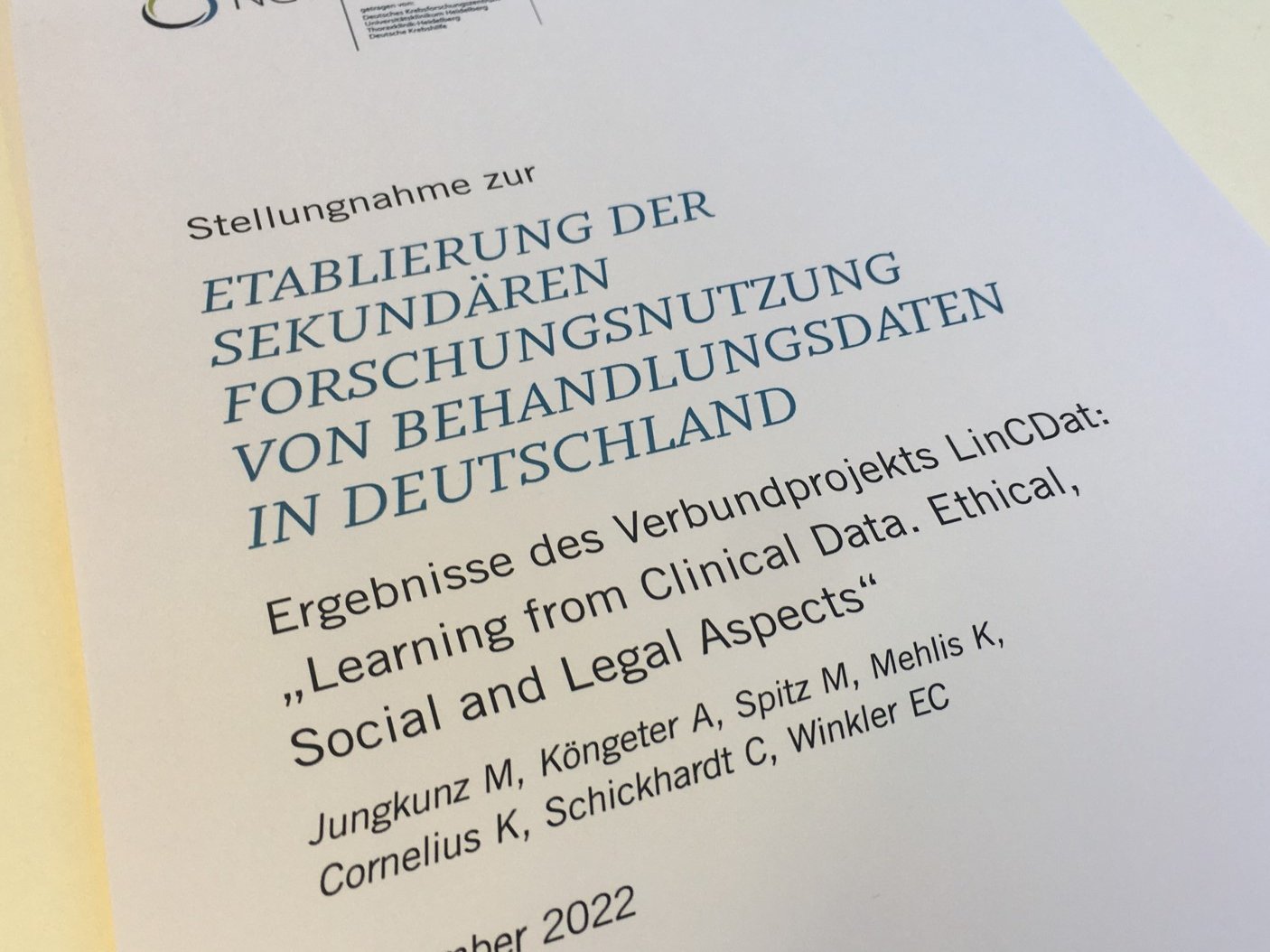Maximising potential: treatment data for research
- 28 Nov 2022
- Ulrike Träger
The Corona pandemic has shown this in a drastic way: Data generated during the treatment of patients is indispensable for biomedical research, epidemiology and well-founded political decisions. Instead of being able to rely on data from German hospitals, science and politics had to resort to data from other countries.
This example supports the critical assessment reached by an interdisciplinary team of Heidelberg scientists based on their own studies in a collaborative project. The current secondary use of treatment data for research purposes in Germany leaves potential unused. It is unsatisfactory - both for science and for patient care. In a recently published statement, experts from the fields of medicine, law, ethics, and the social sciences answer the question of what is needed to ensure that patient data can be systematically used for analyzing the quality of clinical care and for medical research.
The research use of data from medical routine care is both ethically and politically imperative. At the same time, it is necessary to expand the infrastructures required for this purpose. The safety, quality and cost-effectiveness of medical care can be improved in this way, and new medical findings and therapies can be developed.
A culture needs to be established that supports the sharing of treatment data for research purposes at all levels - from the federal and state governments to health insurers, hospitals, physicians and patients. The authors criticize the fact that concerns and risks, especially with regard to data protection aspects, have been too much in the foreground. More weight should be given to the potential and possible benefits.
The scientists call on legislators to create the legal basis for standard data use without consent, but with an opt-out option. As a standard, data from patients could be used for research under certain conditions. At the same time, patients would have the right to object to the use of their data at any time and without giving reasons. Until this new legal situation is created, the legislator should establish legal certainty with regard to the use of general broad consent for secondary research use of treatment data.
The statement now published is the result of the interdisciplinary Learning from Clinical Data (LinCDat) collaborative project funded by the German Research Foundation (DFG). It is based on several years of social science, ethical and legal research, which has been published in numerous scientific publications. Researchers from the National Center for Tumor Diseases (NCT) Heidelberg, Heidelberg University Hospital (UKHD), the German Cancer Research Center (DKFZ) and Heidelberg University are involved. GHGA Director Eva Winkel and GHGA member Christoph Schickhardt were significantly involved in the statement.
The statement is available for download at the following link.






